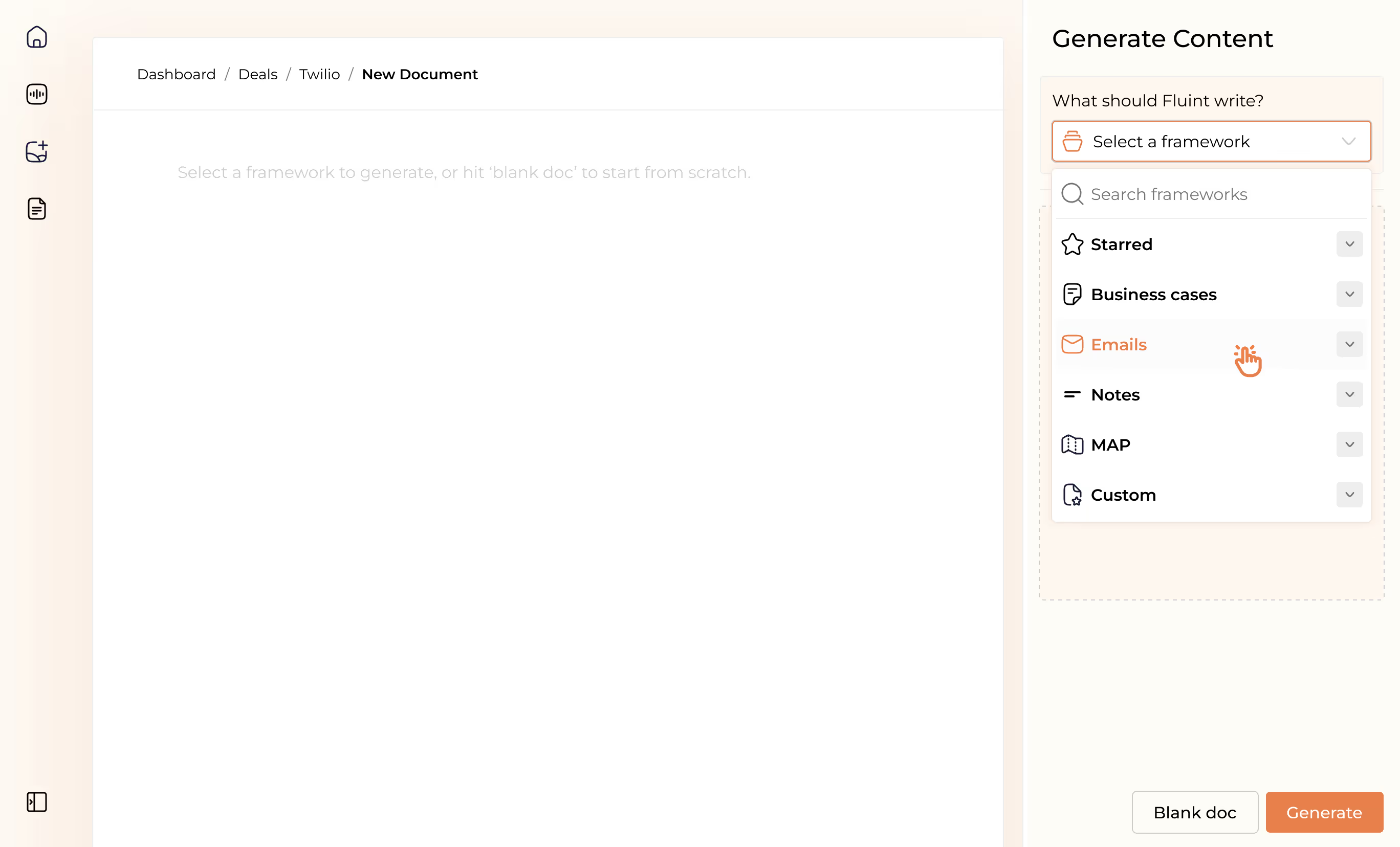Developing Presence: How to Become a Non-Anxious Seller


TL;DR
We’ve gone deep on all kinds of sales practices, phrases, and process on this blog.
But there’s one topic that enables all of them that I have yet to write about: presence.
Chronic anxiety plagues sellers. In fact, 63% of sellers struggle with their mental health. That’s 3X the rate for the general workforce.
This, no doubt, affects how we show up for our champions—the people putting their internal reputation behind potentially risky projects with us.
Which means becoming a calm, non-anxious presence is key to enabling your buyers.
Becoming a seller who’s steady during the ups and downs that selling enterprise always entails is what makes so many of the frameworks I write about "work."
But becoming a non-anxious seller is extremely hard while working for anxious sales leaders.
Which is why I'm directing a good deal of this post towards sales leaders, vs. reps.
"Why does he walk around so quickly?"
When I first started leading a strategic team, I was a ball of stress. Always.
I was tipped off that my stress was causing others stress when my wife flew to Washington, DC to meet me there for a long weekend. The company I was working for was based there.
She got to the office while I was in a meeting, so I texted our office manager to see if he could set her up with a desk for a bit.
While she was sitting at a desk near some of the team I managed at the time, they were talking about me. Completely unaware of who the random lady they’d never met before was.
"Why does he always walk around the office so quickly? It’s like he doesn’t stop moving and it stresses me out."
Later that night, she told me. I was dumbfounded.
Apparently, I have zero poker face.
Eventually, I realized the root cause of my anxiety was superficial leadership.
I was too hands-off, and out of control of the team’s performance. I was hands-off because I feared micromanaging them. Potentially smothering the life out of them, causing them to resent me. Instead of believing that I trusted them.
Soon after this, I started working with an executive coach.
One day, he asked me:
“Can you do your team’s job better than they can?”
I hesitated, not wanting to come across as arrogant. Slowly, I nodded.
“Yes, I know I can.”
“So why aren’t you in the details with them?” he asked me back.
Detailed vs. Superficial Leadership
The outcome from that conversation has since become the top trait on my list for sales leadership. Sales leaders can either be:
- Superficial leaders
- Detailed leaders
John Heider puts it this way in The Tao of Leadership:
“The superficial leader cannot see how things happen, even though the evidence is everywhere. This leader is swept up by drama, sensation, and excitement. All this confusion is blinding.”
The superficial leader is the majority.
The ones who are hands-off. Then, they rush around stressed out at end-of-quarter trying to lead with sweeping directives and discounts.
The detailed leader is the minority.
The ones who understand complexity. They know “revenue” is a composite of a lot of individuals’ pipeline coverages, contract values, close rates, and so on—all the way down to account-level situations.
Superficial leaders who just ended their quarter are either riding high or laid low right now.
They’ll attribute wins to team brilliance, losses to “market conditions,” or other vague causes.
Detailed leaders are calm, clear on what needs to change next quarter, and eager to get started.
Because they’ve been by their reps’ sides every step of the way.
You can test someone for detailed leadership by asking:
“Could you help me break down last quarter’s performance? I’m looking to understand what you’re finding is driving the team’s revenue.”
Then, press in multiple times:
“What do you think caused that? Does this apply across the team or only in certain cases?”
Plus, you’ll feel it. You leave a detailed leader’s presence feeling serene and capable.
You’ll leave a superficial leader's presence feeling anxious and frenetic. Kind of like they’re always walking around too quickly.
Becoming a Non-Anxious Seller
If you’re an individual contributor, make note of this for the next time you’re interviewing. It’s a nonobvious sign you’ve found the right place, but it’s easy to miss.
When you’re with the person you’ll work for:
- Does your heart rate speed up or slow down?
- Is your breathing fast and shallow, or calm and deep?
Your subconscious picks up a lot you’re not actively thinking about. Then, it surfaces those insights to you through physical signals.
Those signals help tell you if a leader is a “non-anxious presence.” Something that detailed leadership enables.
And those signals will tell you if the environment you’re about to sell in gives you:
- Poise and a calming presence (attractive to buyers).
- Freedom to experiment and define your own path.
- Space for deep, focused work like writing narratives.
The opposite (anxious leaders) create environments that are:
- Frantic and pressure-filled (a turnoff for buyers).
- Rigid, requiring you to stick to what they control.
- Reactive and full of interruptions.
Like we said earlier, sales comes with enough anxiety. Which kills creativity and curiosity.
That makes it incredibly challenging to practice the art of Buyer Enablement, which focuses on thoughtful selling with skillsets like:
- Navigating dysfunctional buying groups
- Building committed champions
- Resolving buying team drama
- Asking thoughtful questions
- Crafting internal narratives
- Clearing the 'Trust Hurdle'
So, top reps who are focused on selling with their buyers always choose to play the game where they can become, and remain, a non-anxious presence.
Think about it for a second. What type of "presence" are you selling with right now?
Are you working with superficial, or detailed leaders?
What might happen to your sales numbers if you answered those questions differently?
FAQ's on:
Why stop now?
You’re on a roll. Keep reading related write-up’s:
Draft with one click, go from DIY, to done-with-you AI
Get an executive-ready business case in seconds, built with your buyer's words and our AI.

Meet the sellers simplifying complex deals
Loved by top performers from 500+ companies with over $250M in closed-won revenue, across 19,900 deals managed with Fluint

Now getting more call transcripts into the tool so I can do more of that 1-click goodness.



The buying team literally skipped entire steps in the decision process after seeing our champion lay out the value for them.


Which is what Fluint lets me do: enable my champions, by making it easy for them to sell what matters to them and impacts their role.








